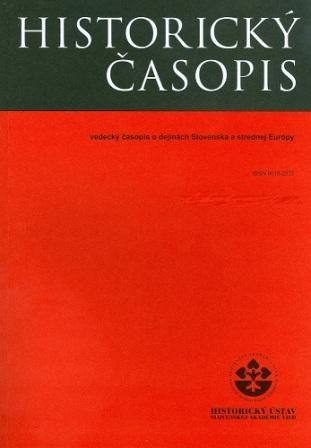Viera alebo rasa. Dilemy tvorby prvých protižidovských noriem na Slovensku
Faith or race. The dilemma of writing the first anti-jewish legislation in Slovakia.
Author(s): Katarína ZavackáSubject(s): Law, Constitution, Jurisprudence, History of Law, History of Antisemitism
Published by: Historický ústav SAV
Keywords: Law; Legislation; Slovak State; Anti-Semitism; Race;
Summary/Abstract: The assumption that legislation should discriminate against citizens regarded as “Jews” was a basic feature of the Ľudák idea of state law in the period of the disintegration of Czechoslovak parliamentary democracy after the Munich Agreement. However, there were varying views on the question of definition of who would be covered by this legislation. From autumn 1939, internal debates in Slovakia’s autonomous political institutions, in the Ľudák controlled media and until 14 March 1939 in contacts with the central Czecho-Slovak ministries were carried on with the aim of accelerating the practical implementation of such legislation. In the official anti-Semitic discourse and subsequently also in the process of preparing and adopting anti-Jewish legislation, the influence of the traditional religious anti-Semitism supported by economic and cultural arguments overlapped with the newer and gradually strengthening racist argumentation derived from the Nazi Third Reich. The study is directed towards the origins of the Ľudák anti-Semitic legislation, and the argumentational strategy of its proposers, by which they introduced racist principles, and endeavoured to merge them with the proclaimed Christian basis of the Ľudák regime.
Journal: Historický časopis
- Issue Year: 69/2021
- Issue No: 4
- Page Range: 579 - 599
- Page Count: 21
- Language: Slovak

